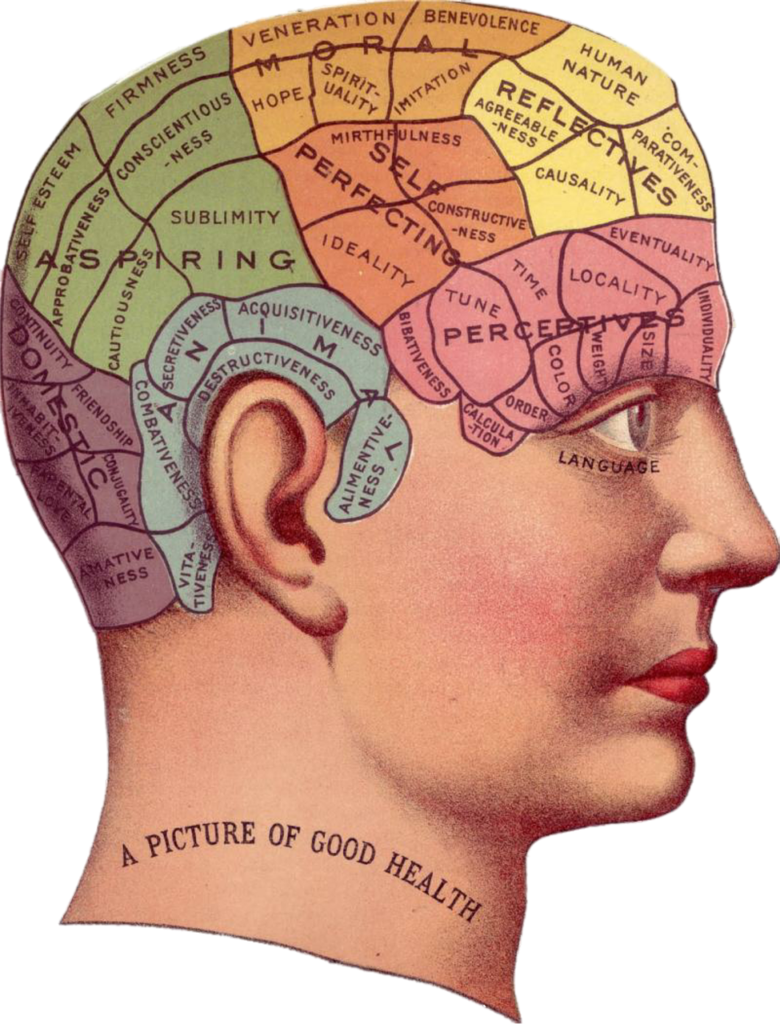
Food Evolution vs. Brain Evolution: Fast vs. Not Much
Our brains pay attention to the foods that are the most likely to be highly dense, high calorie, and not necessarily what we want to be eating. According to a recent scientific study, humans more accurately recall high-calorie locations than low-calorie foods [1] — the conclusions point towards hardwired brain getting in the way of modern thinking about health and fitness.
We look here and there, but our minds save code into human spatial memory food types and locations that prioritize the highest calorie foods. We tend to remember smells and places where compelling food was presented, smelled, and consumed. We retain these locations so well; it is likely we can not forget them.
These sights and smells readily find a home in the brain. So, “try it, you’ll like it “or “bet you can’t eat just one” or repeat customers at a calorie-rich restaurant or fast food is part of our hardwired brain biases.
Scientists still don’t know how much spatial memory bias shapes eating behavior. Of course, food choices are often much more complicated than what seems right at the time. We have an innate capacity to locate high-caloric food items based on olfactory senses and fix them in spatial memory.
This hardwiring may have been essential for our ancestors to survive but is peculiarly present today. A recent study conducted by researchers at a three-day-long Lowlands Science festival program in the Netherlands seems to prove that our brain retains this time-honored survivalist technique even in our ultramodern times.
The New Study
The scientists Rachelle de Vries and Paulina Morquecho-Campos set up a maze-like environment to test this action hypothesis. Researchers instructed 512 willing participants in the experiment to follow arrows around a room in which they placed the following food samples (8 pillars in total):
- Apple
- Melon
- Peanuts
- Brownie
- Chips
- Cucumber
- Tomato
- Caramel
The participants were not given any indication they would have to recall where select food items were located in this maze. After smelling or tasting these samples, the group was then asked to find these items on a map.
“These results are exciting because they give us more insight into our cognitive architecture, or how human minds are ‘wired’ to respond to objects that had fitness-relevance in our evolutionary history [2],” de Vries said.
“Participants presented with food samples were 27% more accurate, and those presented with food odor samples were 28% more accurate at mapping high calorie than low-calorie foods to the correct location [3]. Spatial memory was not affected by whether foods were sweet or savory or how much participants liked each sample.
Overall mapping of foods was 243% more accurate when research volunteers were presented with food samples rather than food-scented cotton pads.” Interestingly, spatial memory was not affected by whether foods were sweet or savory or how much participants liked each sample.
Conscious or Mindless Reflexive Eating
 All species face the significant adaptive problem of efficiently locating high‐quality nutritional resources. Some people see the “Golden Arches” or another fast food logo, and before they know, it finds themselves eating in or pulling through the take out lane.
All species face the significant adaptive problem of efficiently locating high‐quality nutritional resources. Some people see the “Golden Arches” or another fast food logo, and before they know, it finds themselves eating in or pulling through the take out lane.
We might think that we grab high-calorie foods out of necessity due to financial resources, but it is more complicated than price, accessibility, or convenience. “We are currently busy with further unpacking how exactly the high calorie bias in human spatial memory may directly or indirectly influence the foods we choose to eat regularly or the food locations we regularly visit,” de Vries says.
Along with the most widely discussed factors in high calorie and unhealthy food choices, a prehistoric bias may be supporting these bad choices. The hardwired cognitive system could guide food choices, unconsciously, without people ever knowing.
De Vries’s results suggest that human minds continue to house a cognitive system optimized for energy‐efficient foraging within erratic food habitats of the past and highlight the often underestimated capabilities of the human olfactory sense.
Enhanced memory of high calorie foods could subtly lead people to gravitate towards them more often, and eventually, make them take on extra weight or suffer some negative consequences of a poorly conceived diet. “Such insights are helpful to advise how we could protect against potential negative effects of the memory bias on eating behavior.”
Mindfulness appears to work by increased awareness of internal rather than external cues to eat [4]. Mindfulness is a very logical therapeutic approach to mitigate the findings reported by De Vries and reflexive or automatic eating.
These studies may also help us advance the research of taste and the brain’s processing of taste sensation. Oddly enough, the taste studies support total calorie processing by preceding taste sensations and brain activation [5].
Mindfulness, intuitive eating, and mindful eating can address problematic eating behaviors and the challenges many faces with controlling their food intake. Encouraging a mindful eating approach would seem to be a positive message for general weight management advice to the public.
Increases in mindful eating were associated with decreased eating of sweets and fasting glucose levels among mindfulness group participants. Increases in mindful eating may contribute to mindfulness-based weight loss interventions on eating sweets and fasting glucose levels [6].
Hunting vs. Exercise
These new data may also be relevant for the entire spectrum of energy balance and weight management. For about 99 percent of human evolution, our ancestors were hunter-gatherers. Their world had predators and an unstable food environment, where food and predators needed to be identified and remembered in both spatial and temporal dimensions.
The hunter part of the equation is often neglected by scientists looking at the U.S. with food on demand by Instacart or usually in abundance. Dissociating exercise from food gathering may be a key reason we do not exercise very much. Exercise by itself is just not very reinforcing.
Duke scientists did six experiments that demonstrated measurement increases how much of an activity people do (e.g., walk or exercise more). It can simultaneously reduce how much people enjoy those activities. As a result, exercise value is decreased over time and continued engagement in the activity and subjective well-being.
City planners and public health advocates know that a healthy lifestyle, healthy eating and exercise would be easier to support in a new friendlcity where moving and walking are reinforcing if it has a purpose [7]. Running or walking to the post office or the store or social walks, rides, or runs makes sense to us and our old brains.
When Exercising for an Ap reward, it is less so. Rather than use exercise or walking computer and phone Apps, we should try to have a purpose and pleasure embedded in the activities.
“In general, tracking activity can increase how much people do,” Duke Professor Etkin said. “But at the same time, measurement has these pernicious effects. Enjoyable activities can become almost like a job by focusing on the outcomes of things that used to be fun.”
Etkin said the findings show it’s essential to be mindful of what we track and why. “This doesn’t mean we should stop measuring our daily activity,” she said, “but we need to balance that increased productivity against our underlying enjoyment. For activities people do for fun, it may be better not to know [8].”
Conclusions
 Homosapiens relied on hunter-gatherer techniques to survive. We needed to plan resources to most efficiently find food. Optimal foraging theory [9] posits that an individual’s fitness is a direct function of the efficiency with which one acquires energy, and natural selection pressures favor foraging traits that maximize the net rate of energy gain.
Homosapiens relied on hunter-gatherer techniques to survive. We needed to plan resources to most efficiently find food. Optimal foraging theory [9] posits that an individual’s fitness is a direct function of the efficiency with which one acquires energy, and natural selection pressures favor foraging traits that maximize the net rate of energy gain.
Although this theory has been extensively referenced concerning the foraging strategies of other animals, the question of whether humans also inherently carry adaptations geared toward energy-efficient foraging has not been proven. Today’s hunter-gatherers shop at stores full of enticing big-serving sized food.
We do not source their food entirely from the earth and wild animals, and they’re not purposefully physically active for most of each day [A]. Both make obesity more likely. Add to that the brain is hardwired to remember where to find the food that is the worst for us to eat.
Rachelle de Vries’ and colleagues’ findings indicate that human spatial memory is biased towards locating high-calorie foods. It seems that these spatial memory findings support the role of highly processed foods as significantly associated with “food addiction [10].”
According to the authors, this bias could have helped human ancestors survive in environments with fluctuating food availability by enabling them to locate calorie-dense foods through foraging efficiently [11]. Old school, high density, and fatty food traditions are fixed in our brains and DNA despite our fast-food fueled modernism. For instance, it may lead us to more frequently choose potato chips over tomatoes in a supermarket or visit fast food outlets more frequently, de Vries adds.
“Taken together, we find that human minds may continue to house an implicit cognitive system optimized for energy-efficient foraging within the fluctuating ancestral food environments in which memory evolved. Human beings are genetically and evolutionarily predisposed to locating calorie-heavy snacks as a means to survive.
We channel our olfactory and muscle memory to lead us to the highest calorie, manufactured foods where pizzas are the healthiest food in our diet. We are still quite similar to our Paleolithic ancestors [12] in brain wiring, but our environments have changed, our food has changed, and hunting is generally limited to Sam’s Club, Costco, or a food market.
Food addiction [13], with its reflexive eating driven by these old brain systems, will need concerted mindful interventions to mitigate and a change in modern human ecology to reverse. Eating disorders like Anorexia Nervosa, Bulimia Nervosa, and Binge Eating might be relevant to consider in this light. But certainly, some cases of overeating could be a fatal attraction with cues and drives toward certain foods.
Resources:
1. de Vries, R., Morquecho-Campos, P., de Vet, E. et al. Human spatial memory implicitly prioritizes high-calorie foods. Sci Rep 10, 15174 (2020). https://doi.org/10.1038/s41598-020-72570-x
2. https://neurosciencenews.com/spatial-memory-high-calorie-food-17143/
3. https://neurosciencenews.com/spatial-memory-high-calorie-food-17143/
4. Warren JM, Smith N, Ashwell M. A structured literature review on the role of mindfulness, mindful eating and intuitive eating in changing eating behaviours: effectiveness and associated potential mechanisms. Nutr Res Rev. 2017 Dec;30(2):272-283. doi: 10.1017/S0954422417000154. Epub 2017 Jul 18. PMID: 28718396.
5. Kure Liu C, Joseph PV, Feldman DE, Kroll DS, Burns JA, Manza P, Volkow ND, Wang GJ. Brain Imaging of Taste Perception in Obesity: a Review. Curr Nutr Rep. 2019 Jun;8(2):108-119. doi: 10.1007/s13668-019-0269-y. PMID: 30945140; PMCID: PMC6486899.
6. Mason AE, Epel ES, Kristeller J, Moran PJ, Dallman M, Lustig RH, Acree M, Bacchetti P, Laraia BA, Hecht FM, Daubenmier J. Effects of a mindfulness-based intervention on mindful eating, sweets consumption, and fasting glucose levels in obese adults: data from the SHINE randomized controlled trial. J Behav Med. 2016 Apr;39(2):201-13. doi: 10.1007/s10865-015-9692-8. Epub 2015 Nov 12. PMID: 26563148; PMCID: PMC4801689.
7. https://www.fuqua.duke.edu/duke-fuqua-insights/etkin-counting-steps
8. https://www.fuqua.duke.edu/duke-fuqua-insights/etkin-counting-steps
9. Pyke, G. H., Pulliam, H. R. & Charnov, E. L. Optimal foraging: a selective review of theory and tests. Q. Rev. Biol. 52, 137–154, 1977.
A. Pontzer H, Raichlen DA, Wood BM, Mabulla AZ, Racette SB, Marlowe FW. Hunter-gatherer energetics and human obesity. PLoS One. 2012;7(7):e40503. doi: 10.1371/journal.pone.0040503. Epub 2012 Jul 25. PMID: 22848382; PMCID: PMC3405064.
10. Schulte EM, Avena NM, Gearhardt AN. Which foods may be addictive? The roles of processing, fat content, and glycemic load. PLoS One. 2015 Feb 18;10(2):e0117959. doi: 10.1371/journal.pone.0117959. PMID: 25692302; PMCID: PMC4334652.
11. de Vries, R., Morquecho-Campos, P., de Vet, E. et al. Human spatial memory implicitly prioritizes high-calorie foods. Sci Rep 10, 15174 (2020). https://doi.org/10.1038/s41598-020-72570-x
12. https://www.theladders.com/career-advice/the-ancient-reason-behind-why-you-love-food-with-the-most-calories
13. https://blog.oup.com/2012/08/food-addiction/
About the Author:
 Mark S. Gold, M.D., Professor, Washington University School of Medicine – Department of Psychiatry, served as Professor, the Donald Dizney Eminent Scholar, Distinguished Professor and Chair of Psychiatry from 1990-2014. He was the first Faculty from the College of Medicine to be selected as a University-wide Distinguished Alumni Professor and served as the 17th University of Florida’s Distinguished Alumni Professor.
Mark S. Gold, M.D., Professor, Washington University School of Medicine – Department of Psychiatry, served as Professor, the Donald Dizney Eminent Scholar, Distinguished Professor and Chair of Psychiatry from 1990-2014. He was the first Faculty from the College of Medicine to be selected as a University-wide Distinguished Alumni Professor and served as the 17th University of Florida’s Distinguished Alumni Professor.
Dr. Gold is also a Distinguished Fellow, American Society of Addiction Medicine; Distinguished Life Fellow, the American Psychiatric Association; Distinguished Fellow, American College of Clinical Pharmacology; Clinical Professor of Psychiatry, Tulane University School of Medicine; Professor( Adjunct), Washington University in St Louis, School of Medicine, Department of Psychiatry; National Council, Washington University in St Louis, Institute for Public Health
Learn more about Mark S. Gold, MD
The opinions and views of our guest contributors are shared to provide a broad perspective of addictions. These are not necessarily the views of Weight Hope, but an effort to offer a discussion of various issues by different concerned individuals.
We at Weight Hope understand that weight issues result from multiple physical, emotional, environmental and genetic factors. If you or a loved one are suffering from a weight concern, please know that there is hope for you.
Published on November 16, 2020. Published on WeightHope.com
Reviewed by Jacquelyn Ekern, MS, LPC on November 16, 2020
